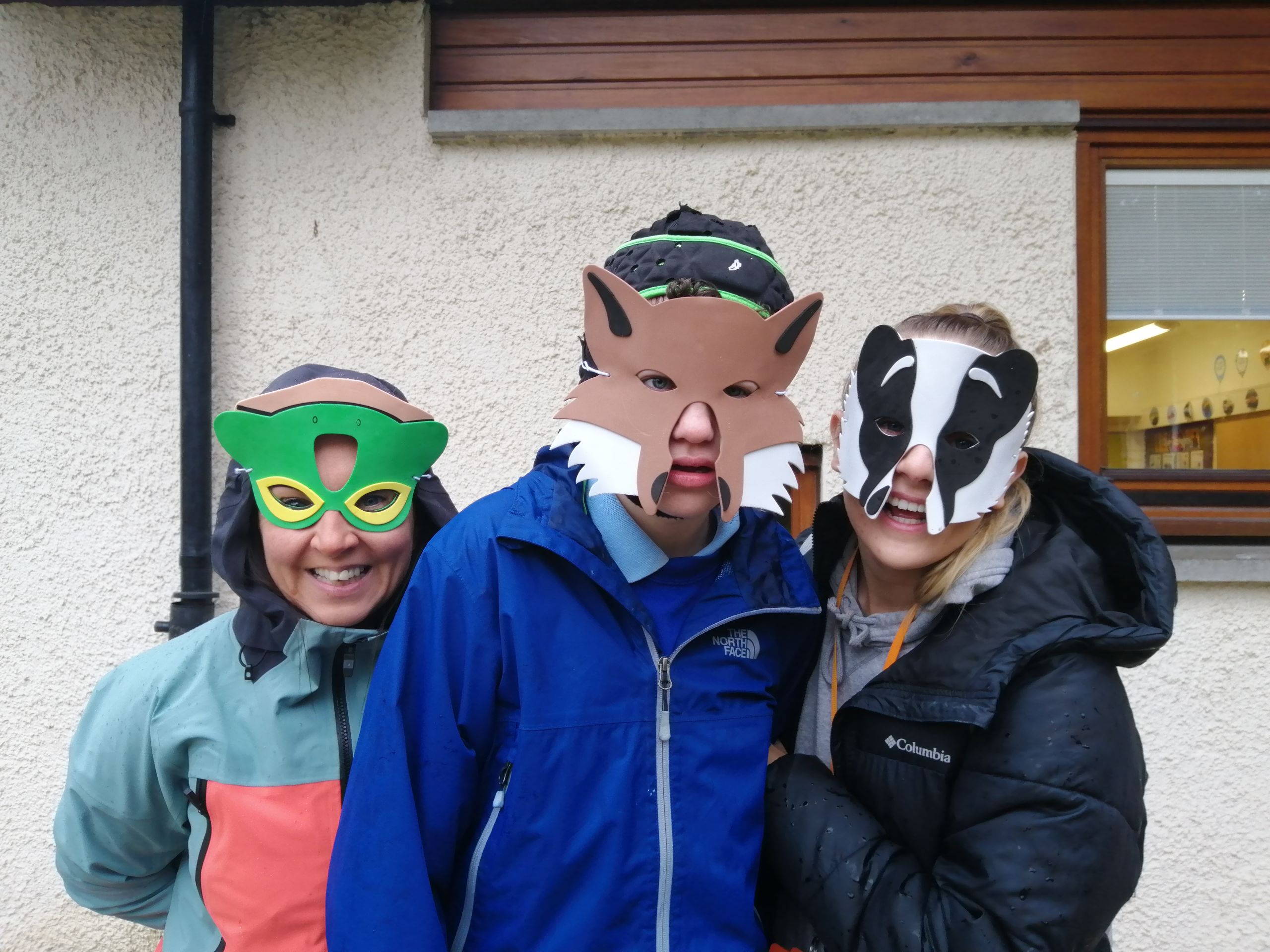
Out to Play
How one school made use of their outdoor space to inspire their pupils during the COVID-19 crisis with the help of drama-based creative play

Hawthorn class are outside. The autumn sunshine is barely breaking through the clouds and the children are standing expectantly in their waterproofs.
They are going on a bear hunt.
Hand in hand with staff, they follow the journey around the garden following the course of Michael Rosen’s tale.
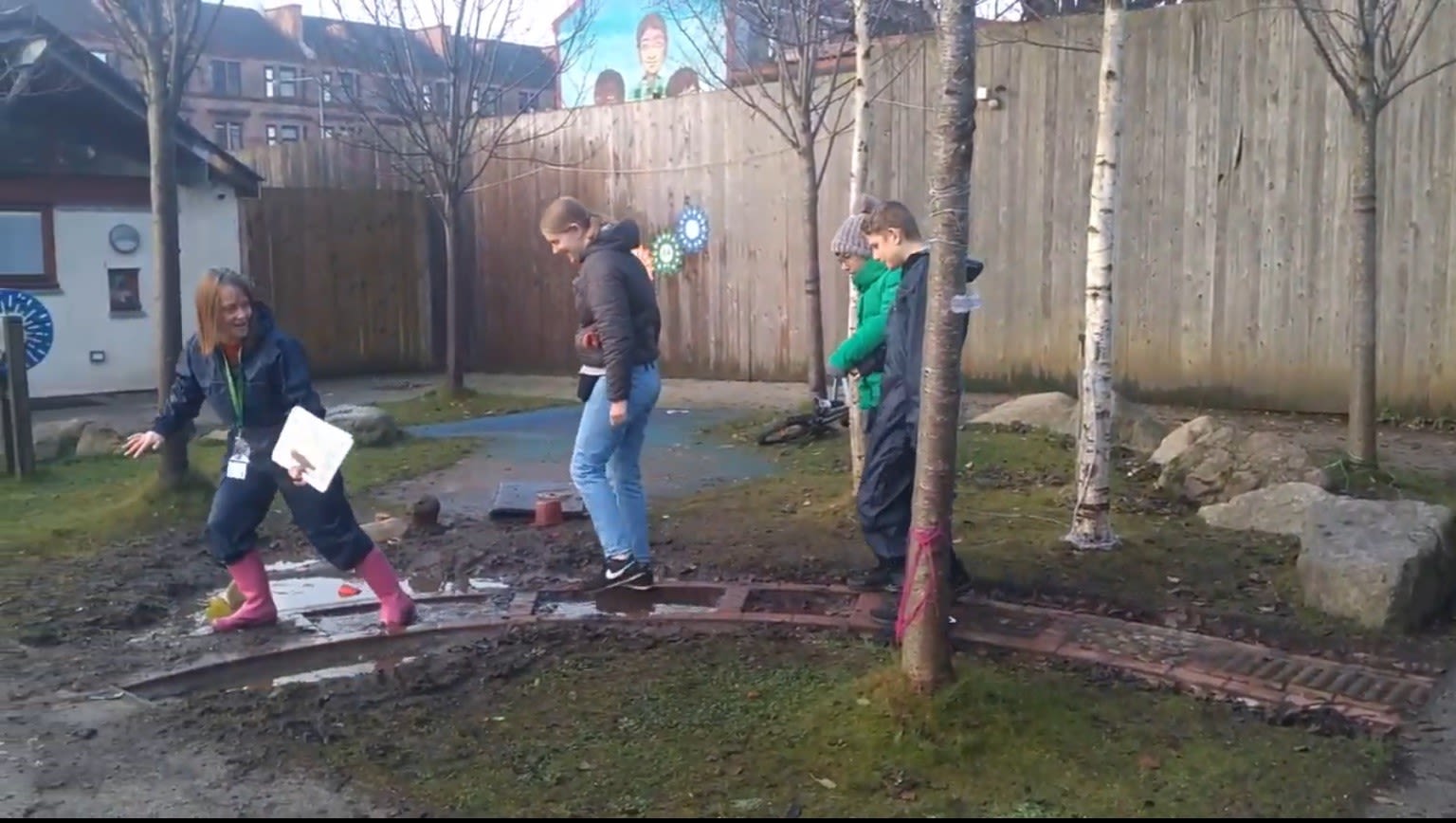
Carefully, they follow the paw prints that have been laid out for them by the staff.
They are going to catch a big one, and they are definitely not scared.
One after another, they make their way through the long grass, across the deep, cold river...
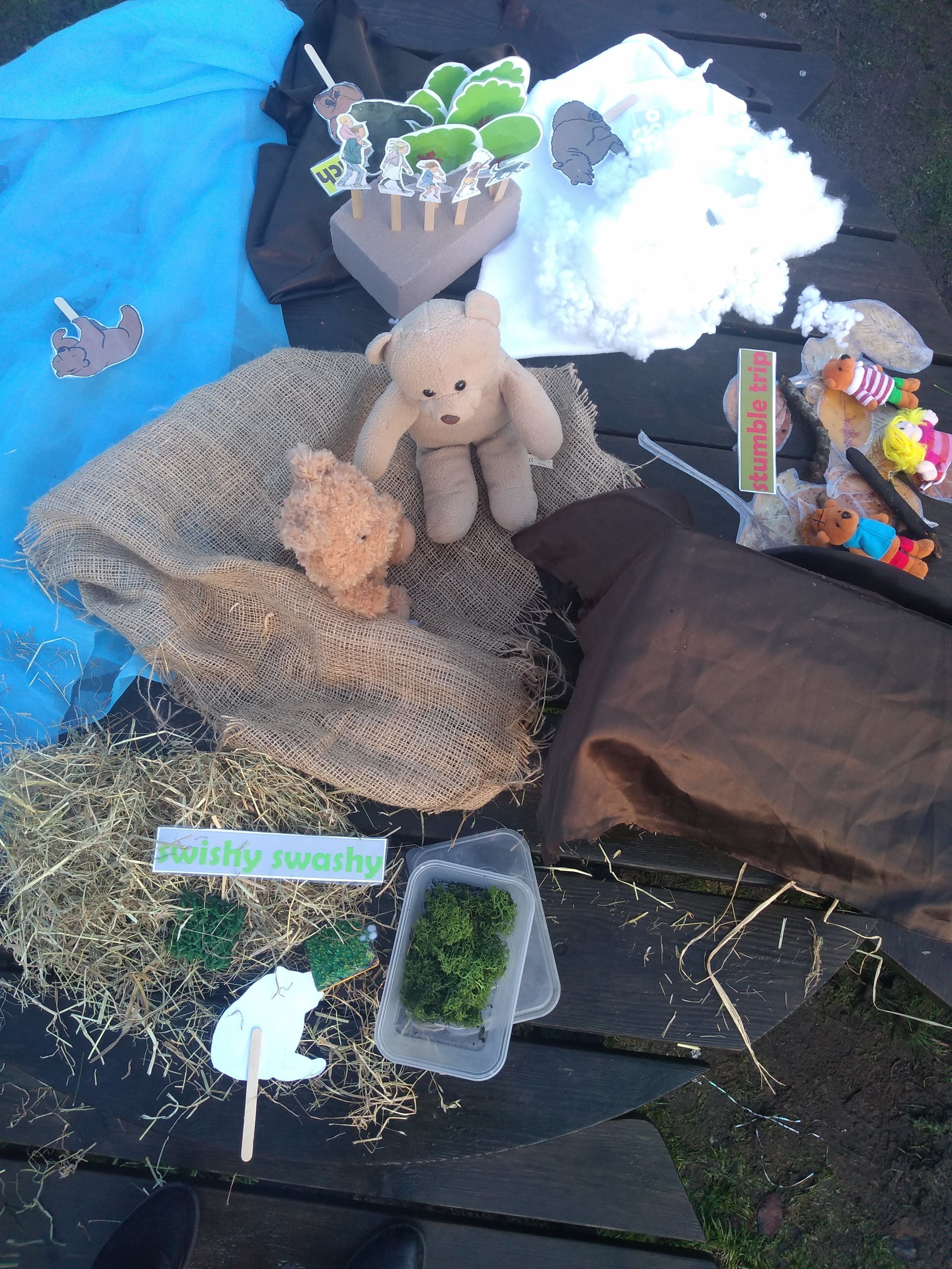
squelch through the mud, stumble into the big dark forest...
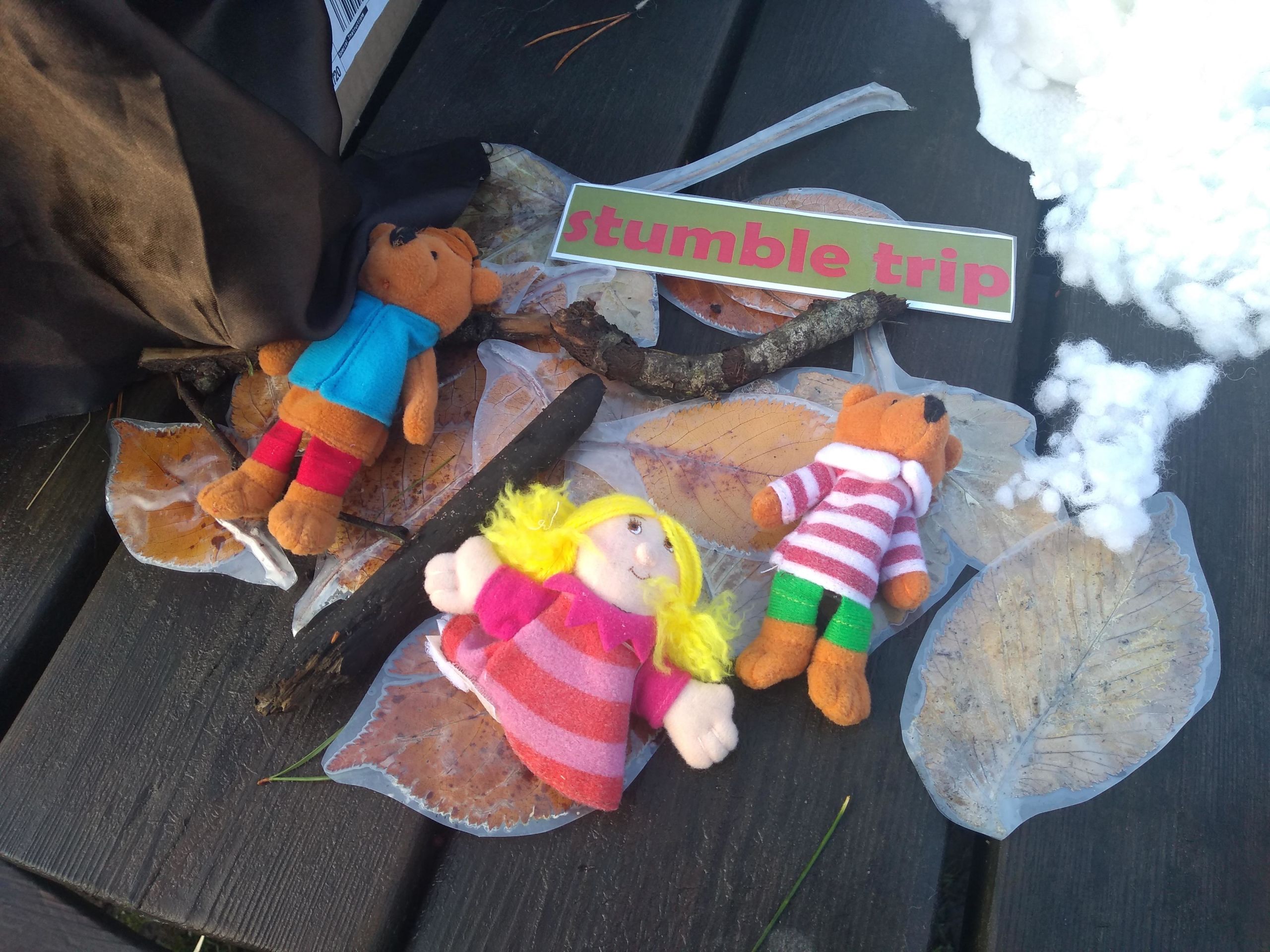
and strike out against the swirling snowstorm, joining in making the sound of the storm.
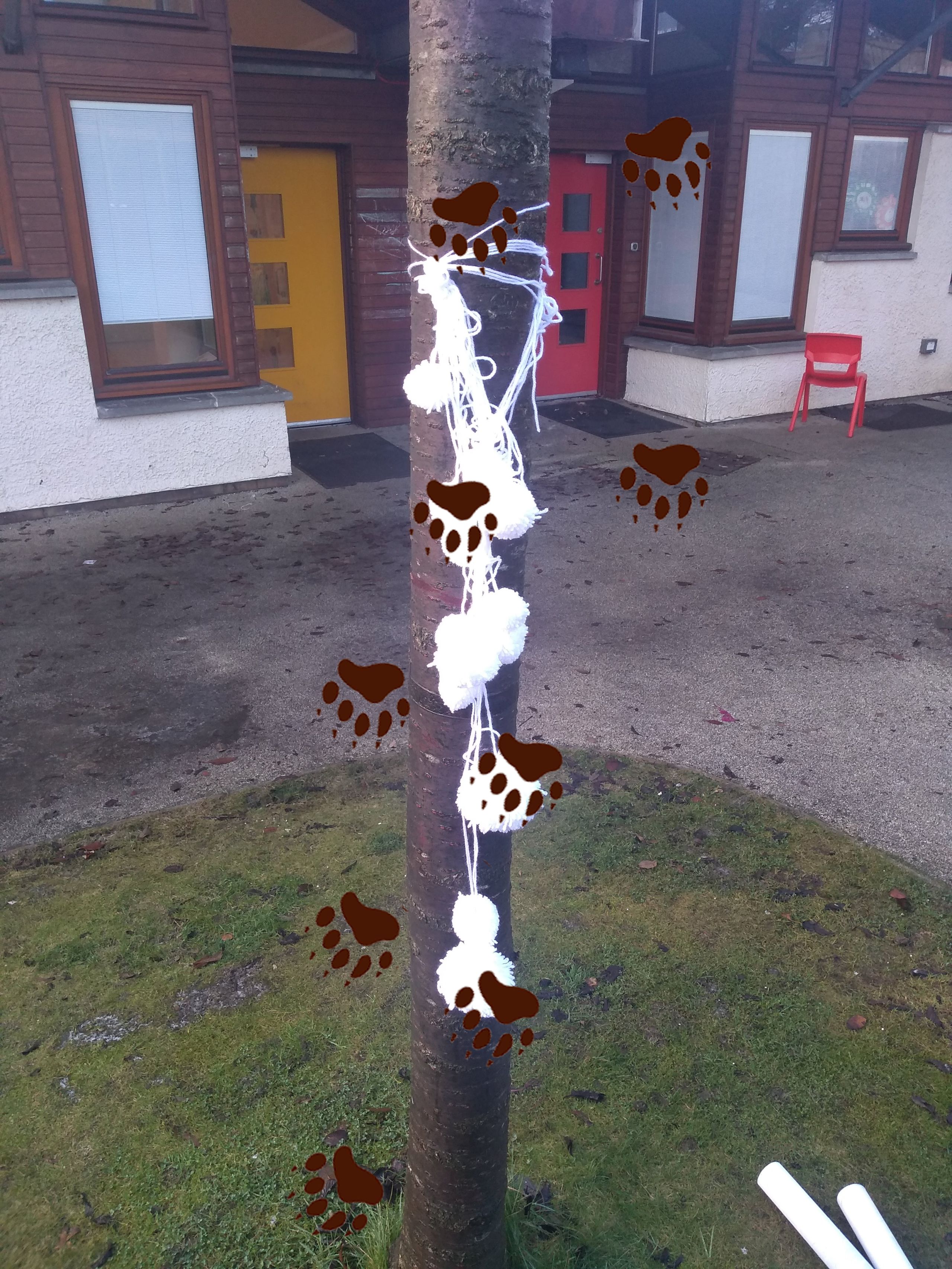
Then they find themselves inside the narrow gloomy cave and are confronted by two big goggly eyes, one shiny wet nose and two big furry ears...

Positive interaction and storytelling have always been integral to the way pupils have learned at East Park. The staff try to use all the spaces inside and outside. However their confidence to do this, which has encouraged them to create these special storytelling environments, has been further inspired by seeing how drama artists from Eco Drama, a collaborative theatre company, took the garden at East Park and used its features to create bespoke sensory experiences for their pupils.


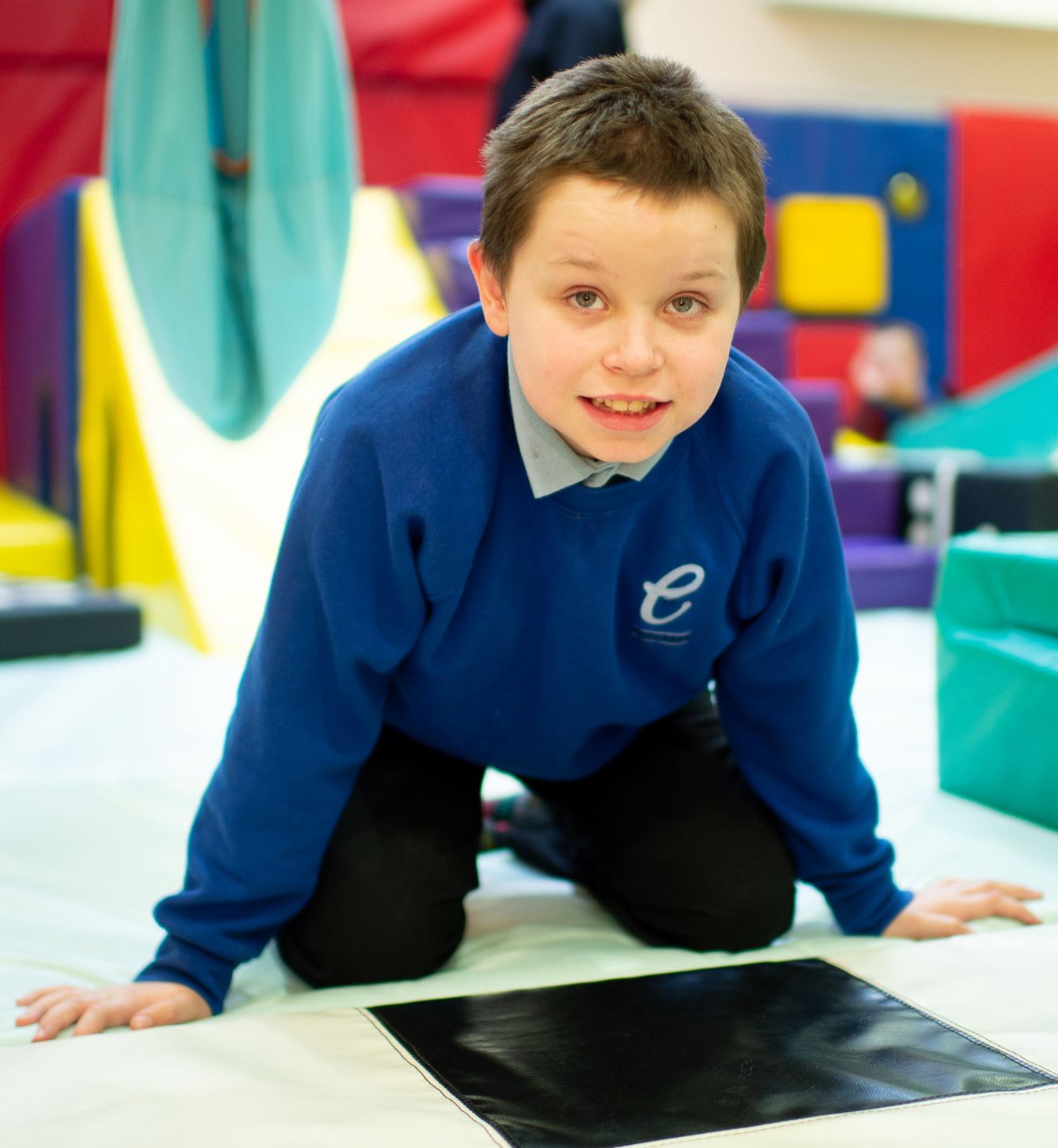
East Park School
East Park School is a registered charity, based in the Maryhill area of Glasgow, Scotland. It has a long history of providing education and supported accommodation services to children and young people with complex additional support needs.
The staff aim to provide care which is centred round the needs of each child or young person they care for, and they are always looking for new ways to engage interest and expand experiences. Adopting a holistic approach to supporting the emotional, intellectual and physical development of their learners, they understand the positive impact of nurturing care and communication.
The challenge and enjoyment of play is seen as the most natural way to learn. Each pupil is different and they enjoy play differently. Some children like to be busy, some quiet and reflective; some children like lots of space, some prefer a quiet nook.
The playful and creative approach by staff encourages children to become problem solvers, decision-makers, to reach for their own boundaries and be independent. This requires the staff to have flexibility and understanding, as each child progresses at their own pace and chooses their own direction.
Learners are encouraged to explore their surroundings with all of their senses and outdoor play is central to that.
The school is well known in the Maryhill area, and the children like to spend time outside of the school in the local community.
The school is fortunate to have a safe outdoor play area that also functions as a gym and multisensory garden. The children waste no opportunity to get outside, whatever the weather.
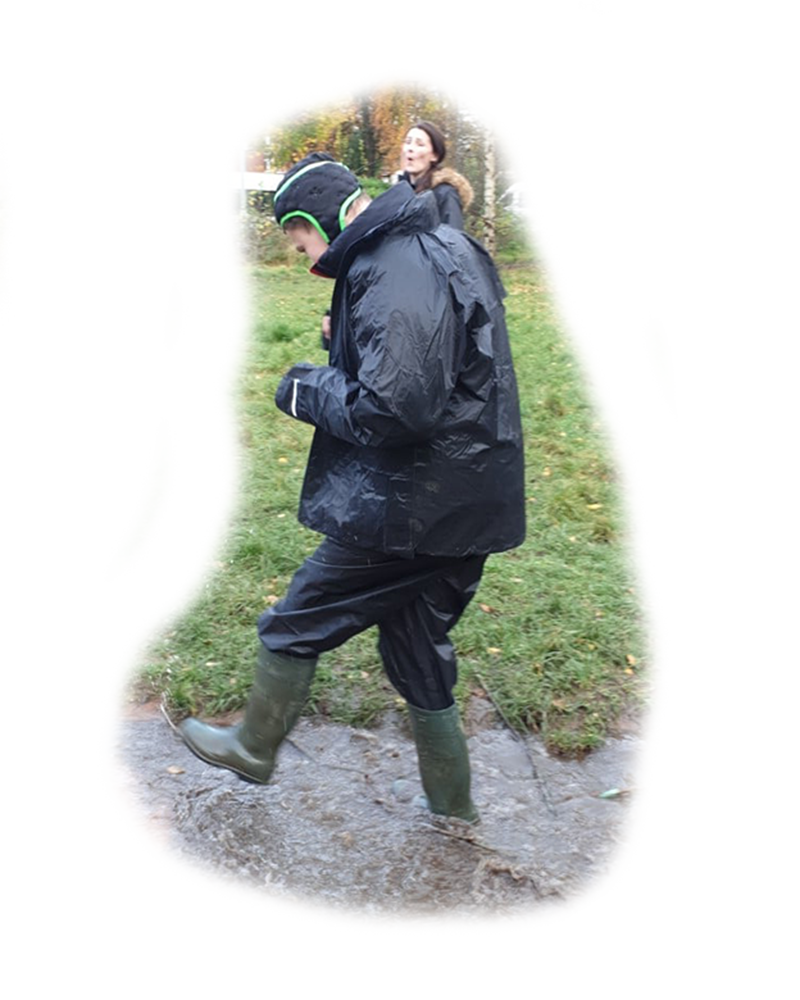
When the COVID-19 restrictions came into force, the staff and children had to live under circumstances none of them had ever experienced before. This affected everything - from how often they could see their loved ones, to what was still allowed to happen within a school day.
The staff worked hard to minimise contact with the outside community and needed to take more time planning any trips outside the school which made everything less spontaneous. Movement inside the school was also limited, with children not being able to move easily from one classroom to another. The effect on many of the children and young people was a real concern as some struggle with transition and change in their set routines. The staff changed their rotas so that they would spend more time together with children and for longer each day. This allowed for a deeper relationship with the learners and helped to mitigate some of the feelings of disorder.
At least they still had their garden.
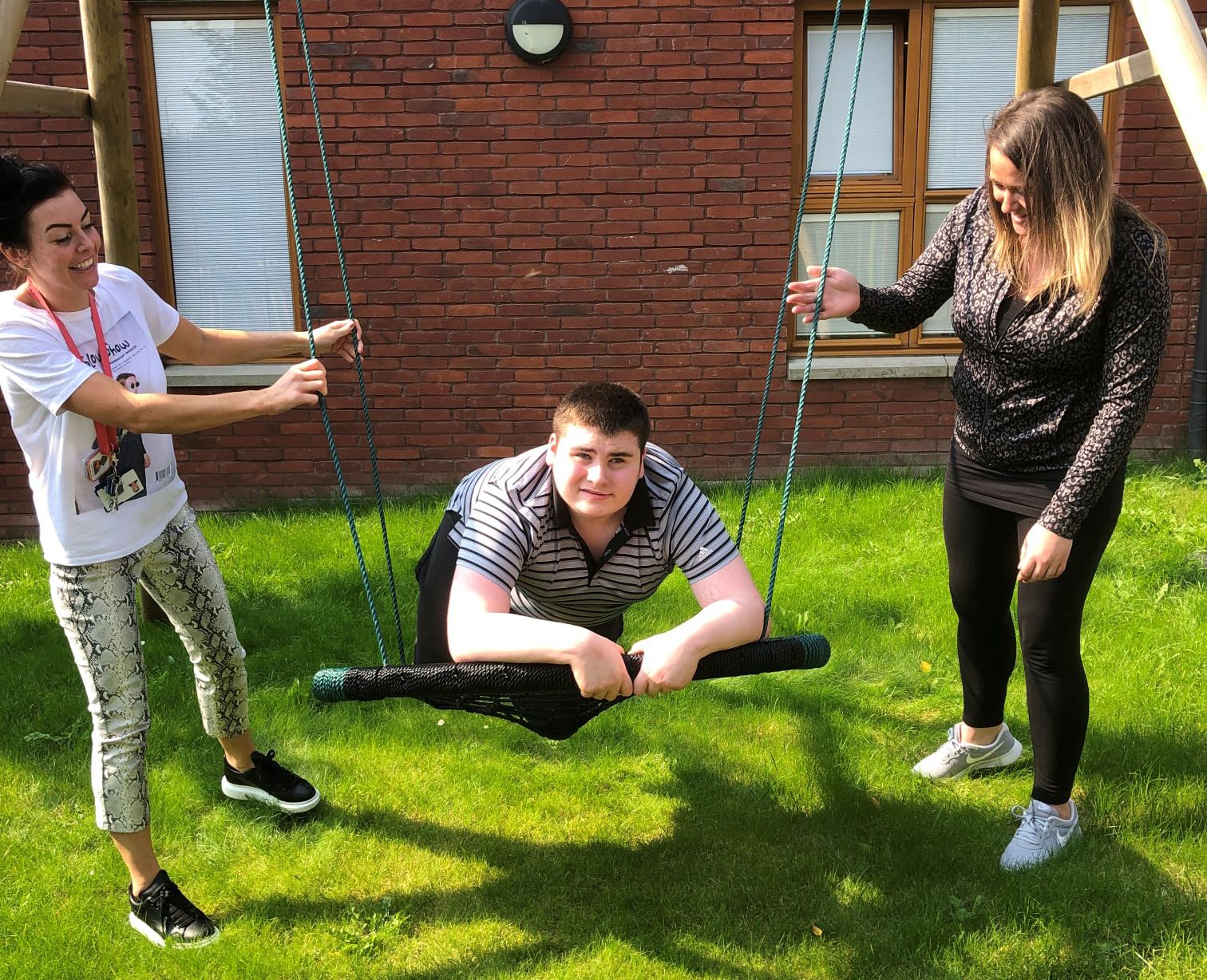
As living under the pandemic continued, East Park staff were eager to discover new exciting and stimulating experiences that could be enjoyed in this new school-wide bubble.
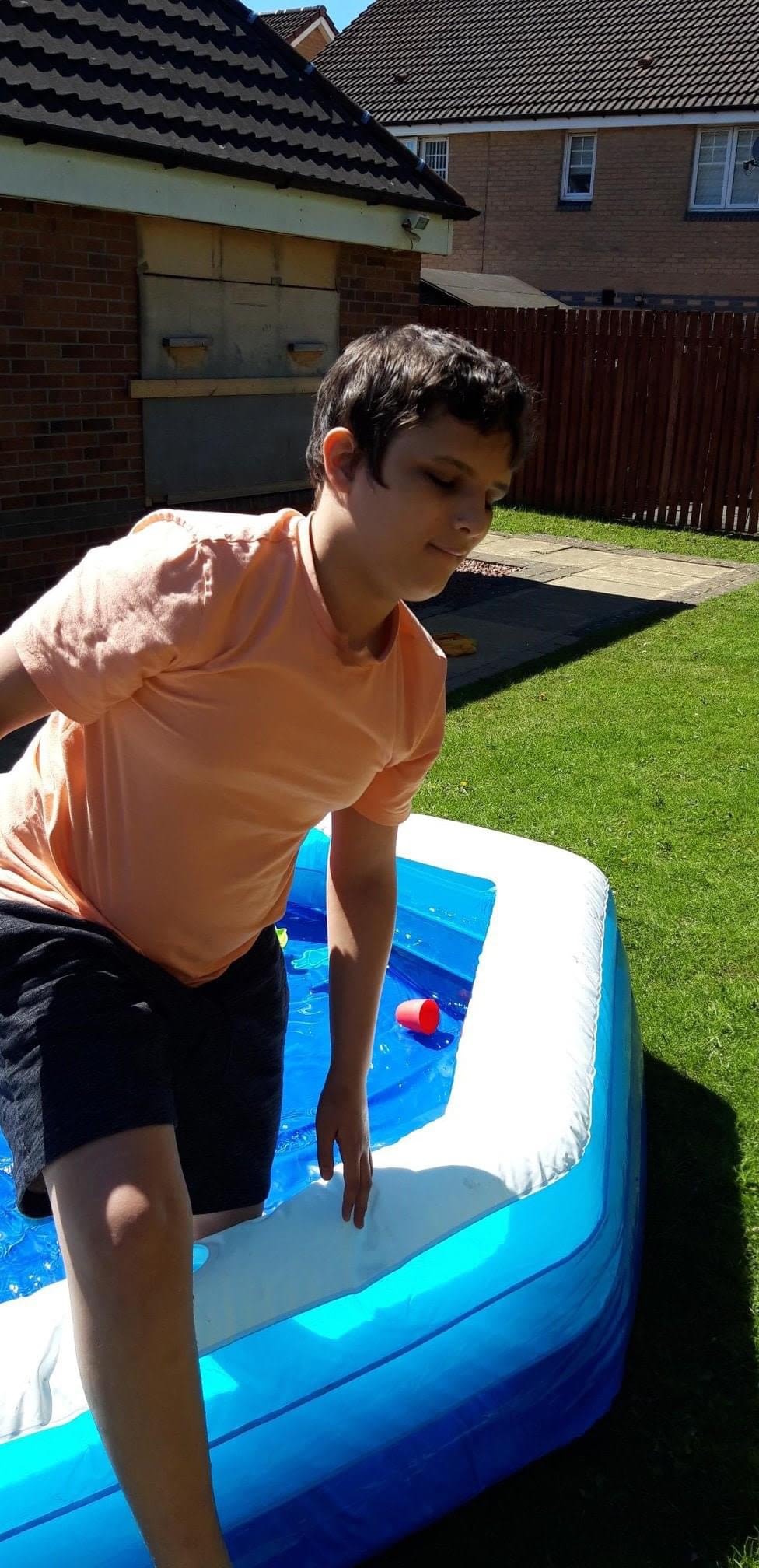
The national restrictions made East Park’s own outdoor space seem even more important. A regular trip to the local swimming pool was hugely popular and sorely missed, so paddling pools and water fights were introduced in the garden.
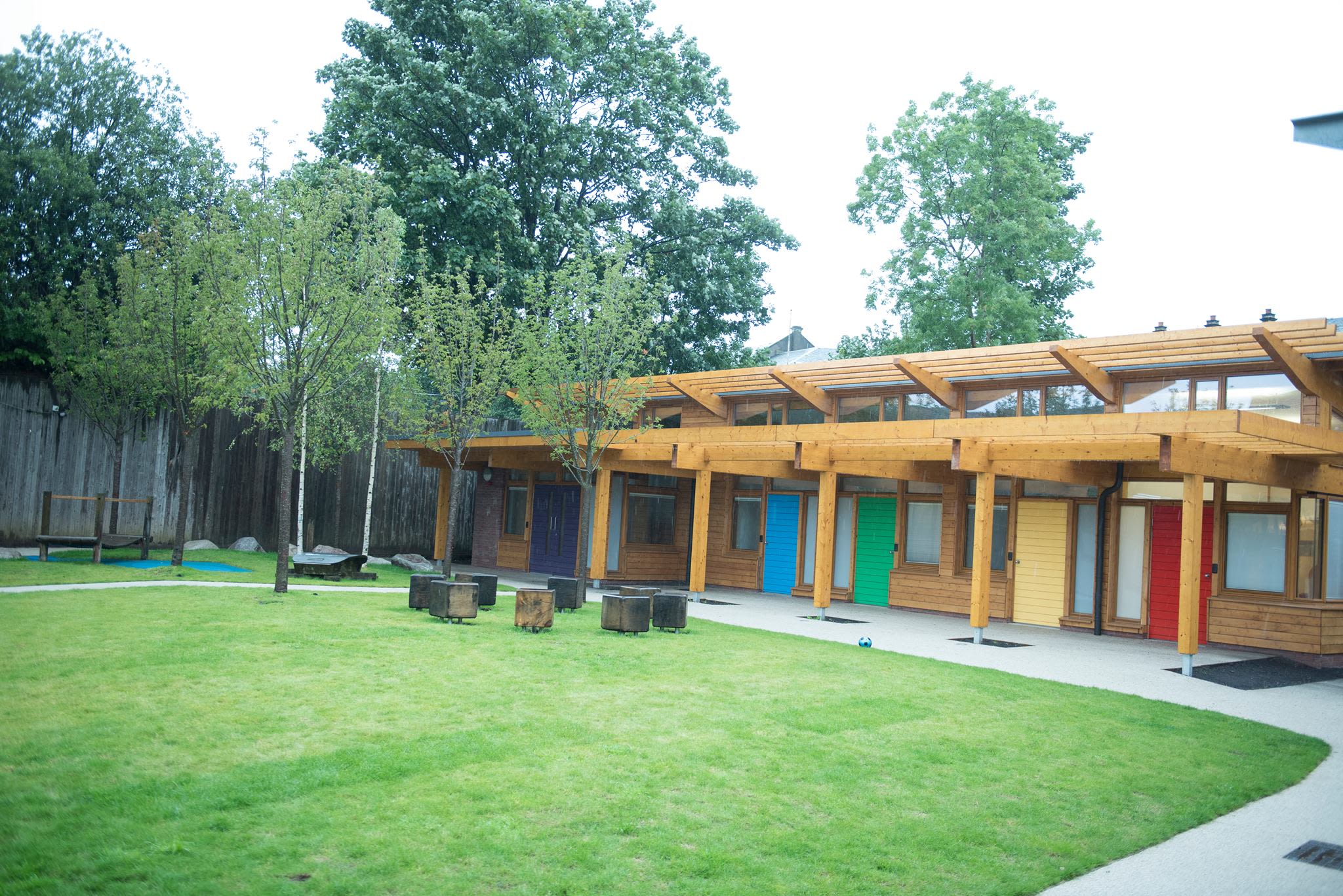
The Whirlybird
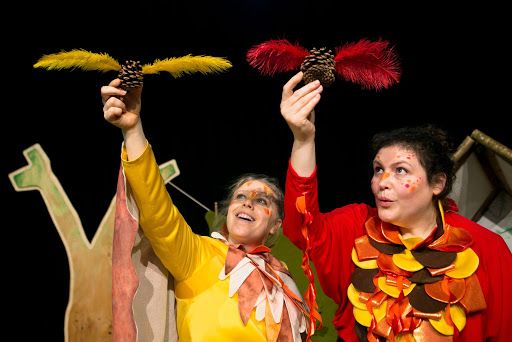
East Park School were first introduced to Eco Drama when they saw its production ‘The Whirlybird’, a story of two young birds learning to fly. East Park staff were impressed by how the production had engaged their pupils. They secured a grant using Pupil Equity Funding for Eco Drama to participate in a five week residency at the school to run their ‘Out to Play’ programme and one of Eco Drama’s drama artists, Sophie McCabe, went to the school to discuss the details of the programme.
'Out to Play' has been running since 2015, and it has evolved into a five week programme that allows creative freedom for the drama artist and teachers to adapt this to their own needs. Because it is flexible enough to be tailored to each individual school, this makes it especially suitable for schools who have learners with complex support needs.
Having run the programme in other schools for young people with complex needs before, Sophie understood how to respond to, and work with, the individual needs of every learner. As one member of staff at East Park told her, “I can tell you these facts, but you need to be here.”
It’s essential for any incoming staff to begin to get to know the pupils, not as a list of names and accompanying information about medical or learning needs, but as unique young people and personalities
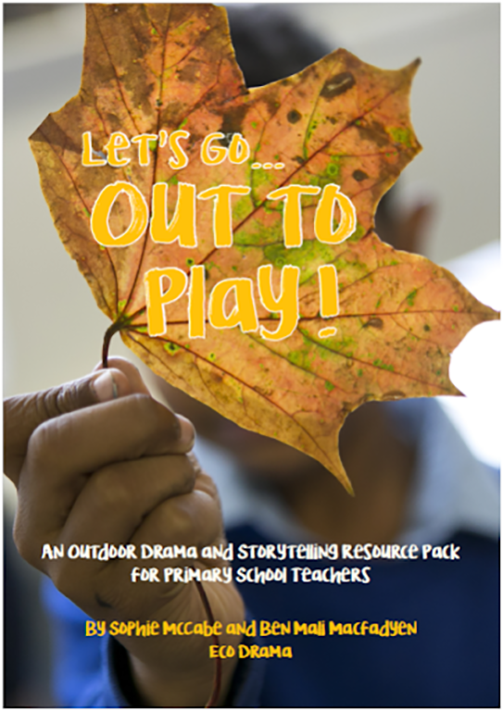
Sophie visited the school in the weeks leading up to the programme to see the pupils and how they interacted with staff. With the outdoor space in mind, she decided to pick a broad nature theme, selected a different story for each week and began thinking about how the theme could be tailored so that all the children could get maximum engagement and enjoyment from the sessions.
Sophie also chose to use the outdoor space so that the children could move in and out of the programme with only the minimum COVID-19 restrictions, and the programme had also been designed to respond to a number of needs specifically for East Park: How to minimise distractions so that learners would be able to engage fully with the Out to Play session? Should the sessions start as short ones and then get longer as the young people became more trusting and confident? And what resources were necessary to transform the area into an imaginative and interesting place for creative play, storytelling, drama?
As some children at the school are uncomfortable with change, Sophie began each session at the central picnic table in the outside space - somewhere familiar to them where she could lay out some intriguing items on the table each week and the children could come and take a look when they felt ready before the sessions.
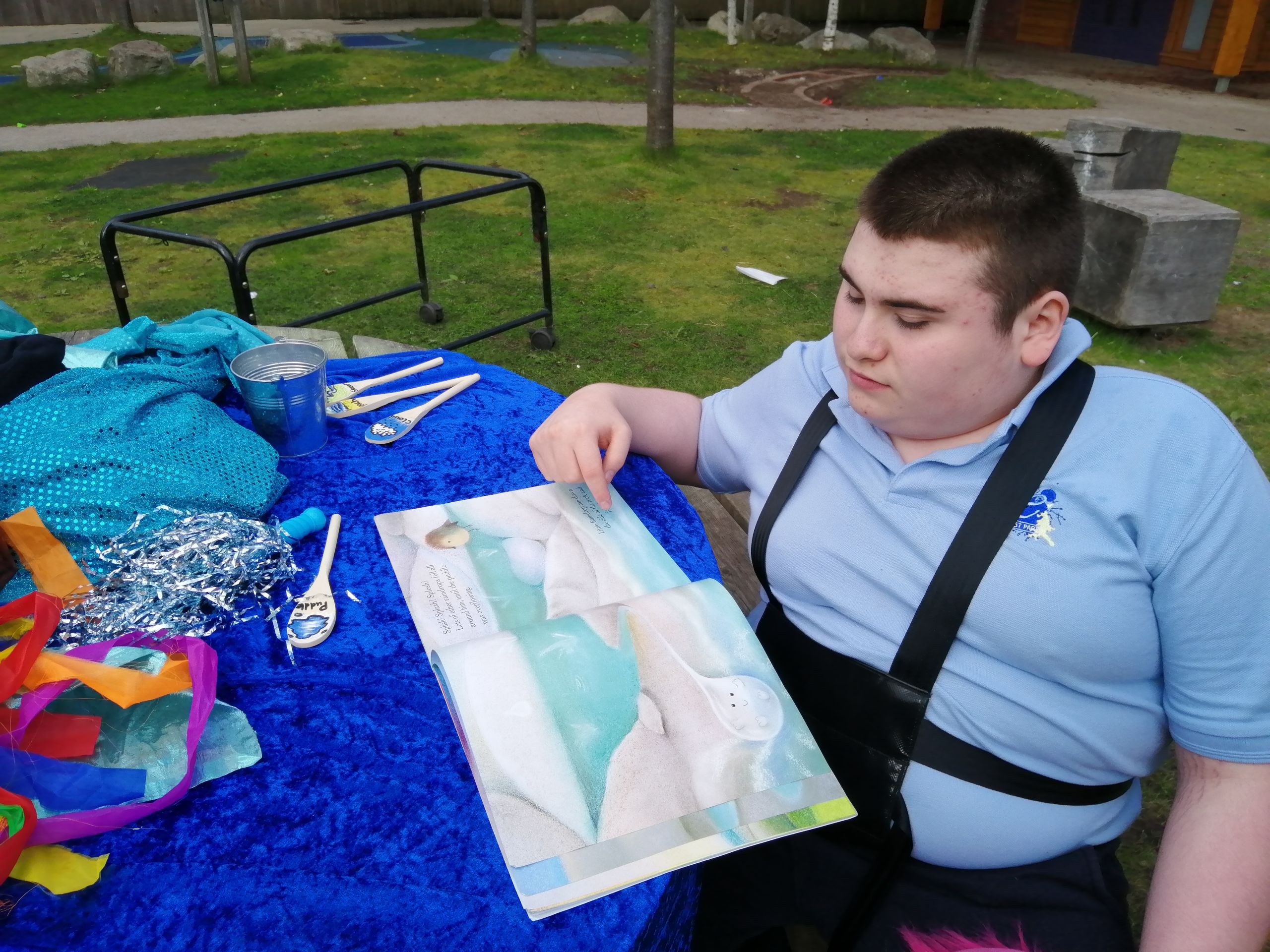
For each of the five weeks of the residency, Sophie and East Park’s staff transformed the outdoor area. The subjects were as varied as exploring the soil for mini-beasts, learning about owls and making their own, learning about the water cycle and the tree of life. The area was decked with objects to stimulate interest, with the children able to see, touch and explore these. Some of the children enjoyed the touch of new textures outside, often getting really messy in the process. For others, a chance to role play, adopt new voices and act out stories, brought new ways for them to express themselves and share their feelings with others.
For the classes of learners who were more accustomed to working as a group, or those pupils with more verbal communication, the Eco Drama team planned a more typically structured ‘Out to Play’ session, using drama games, storytelling and nature activities with a degree of pupil-led flexibility on the day.
And for children who needed more one-to-one engagement and sensory learning, play-based interaction was centred around the different themes using puppets, costumes, messy nature play and sounds.
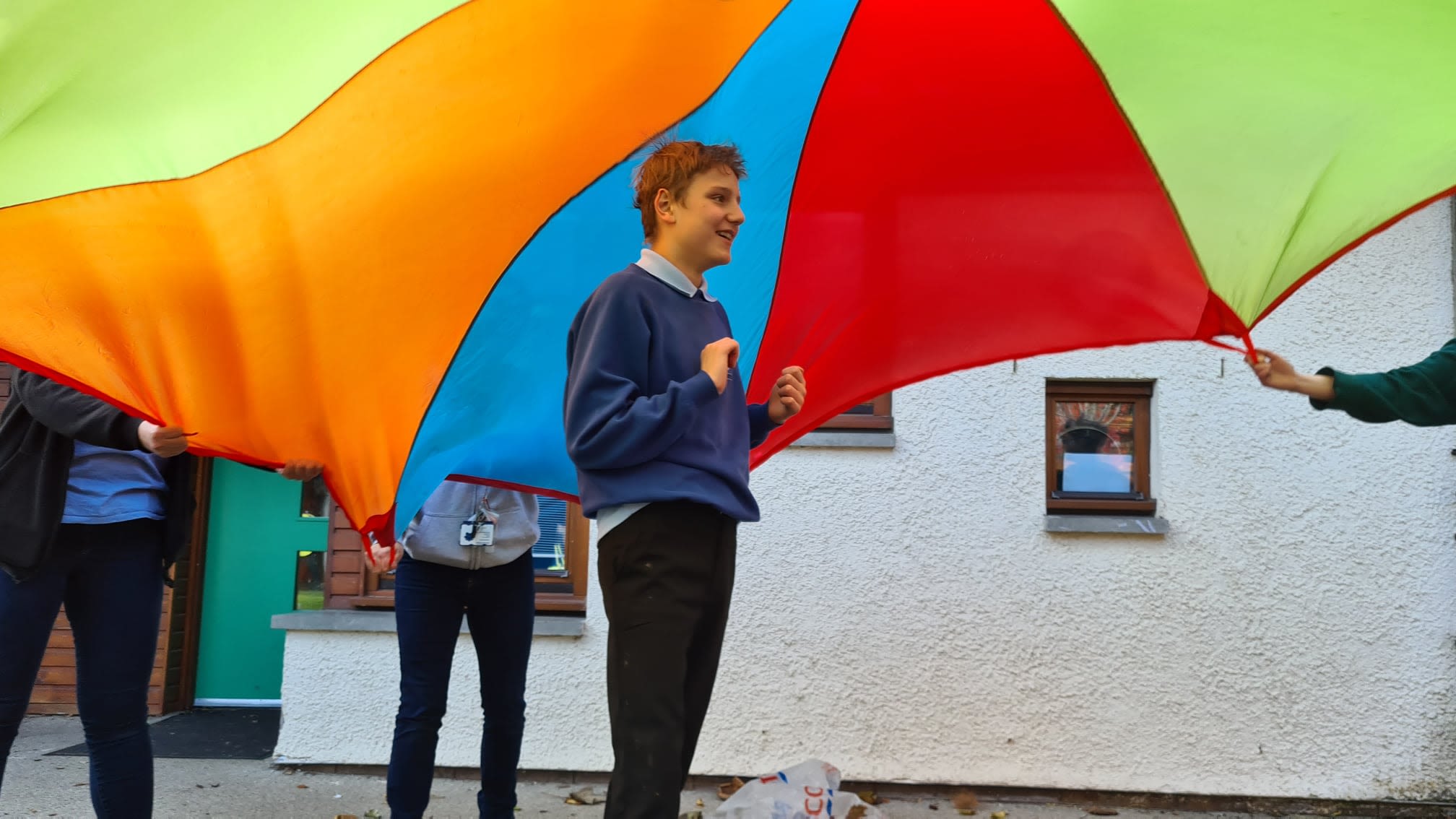
The children really welcomed the Eco Drama team into the school. The pupils looked forward to each session. Children often remained engrossed in the activities in ways that led East Park’s staff to rethink how to structure their outdoor sessions, so that the children have more opportunity to explore activities and to play and learn. The staff had already been rolling out play training and sensory integration training, but the Eco Drama programme has encouraged them to develop it further.
The experience with the Eco Drama team has helped to give the East Park staff the extra confidence to create their own multisensory experiences in the school's outdoor area.
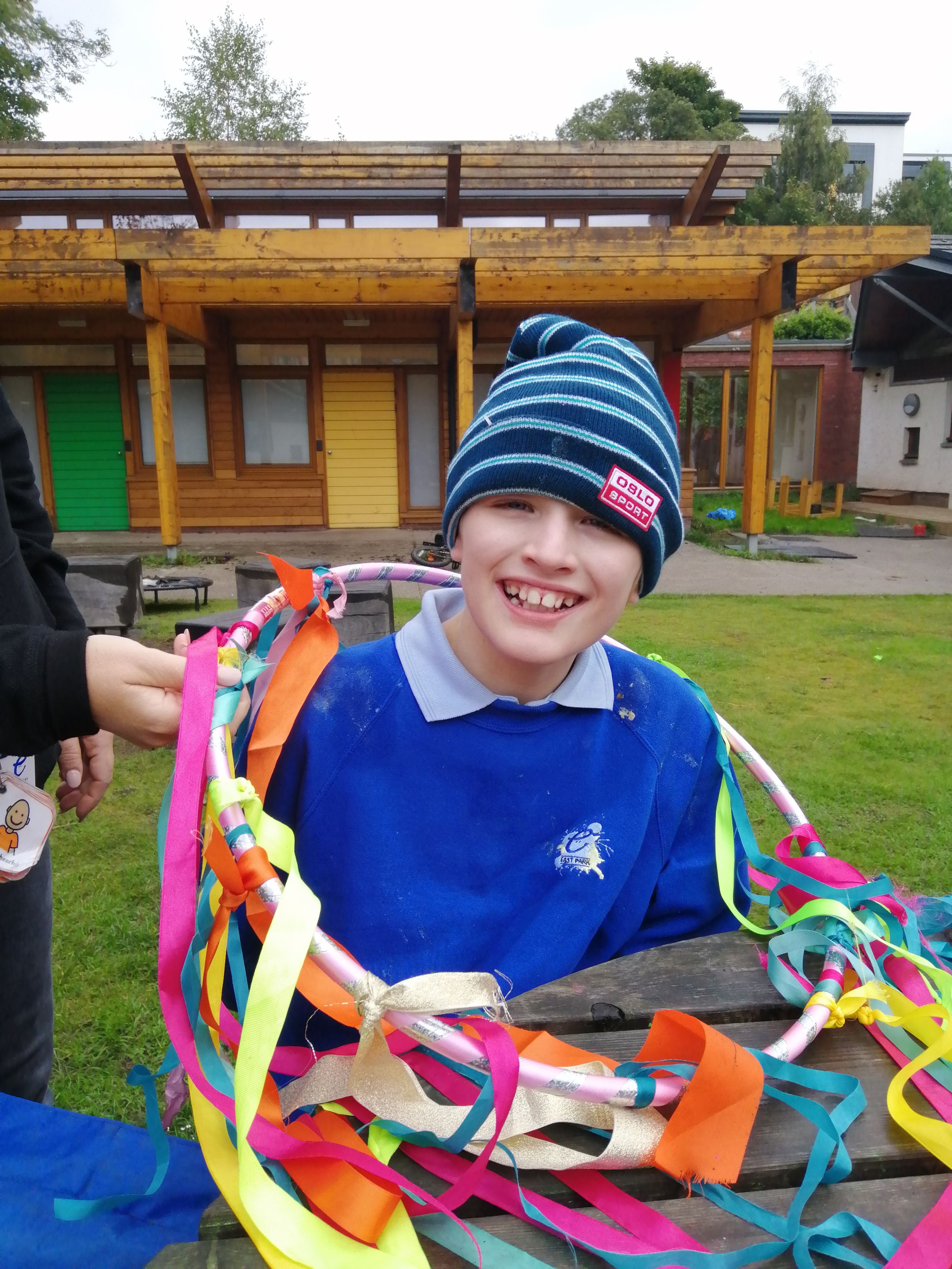
Their Bear Hunt is just the beginning. On the back of that success, the pupils enjoyed The Snowman in their garden at Christmas. And after that, who knows?

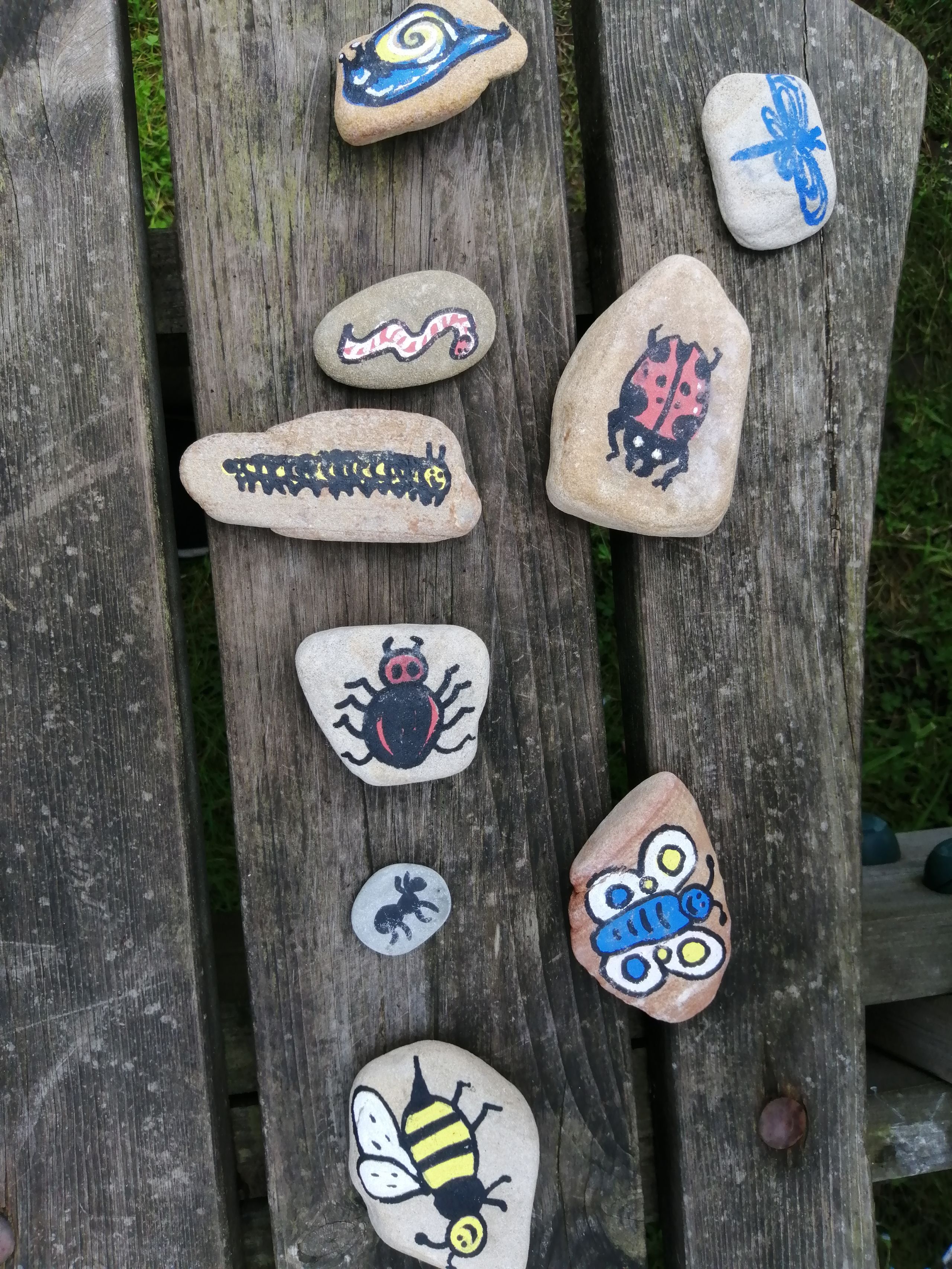
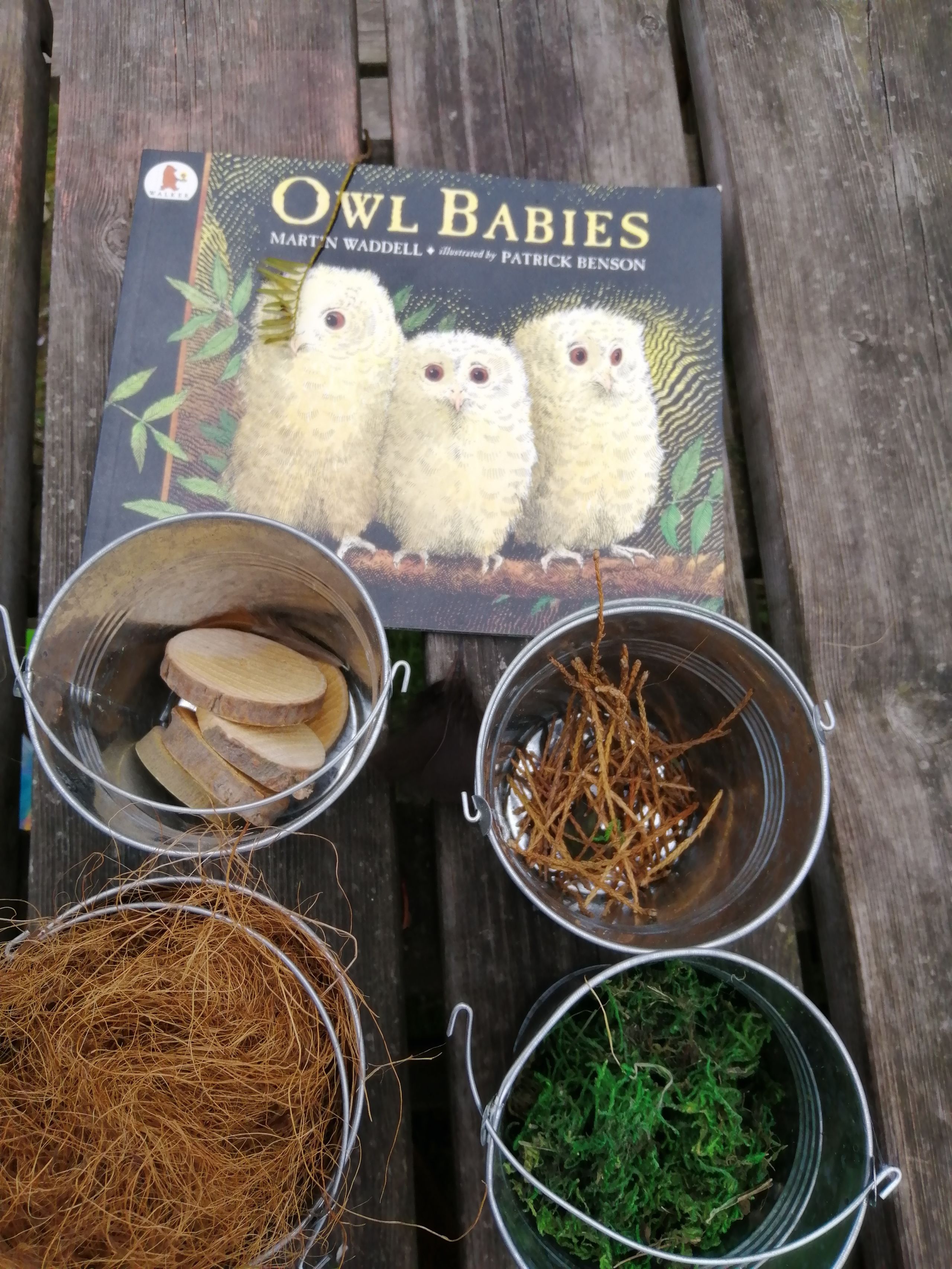
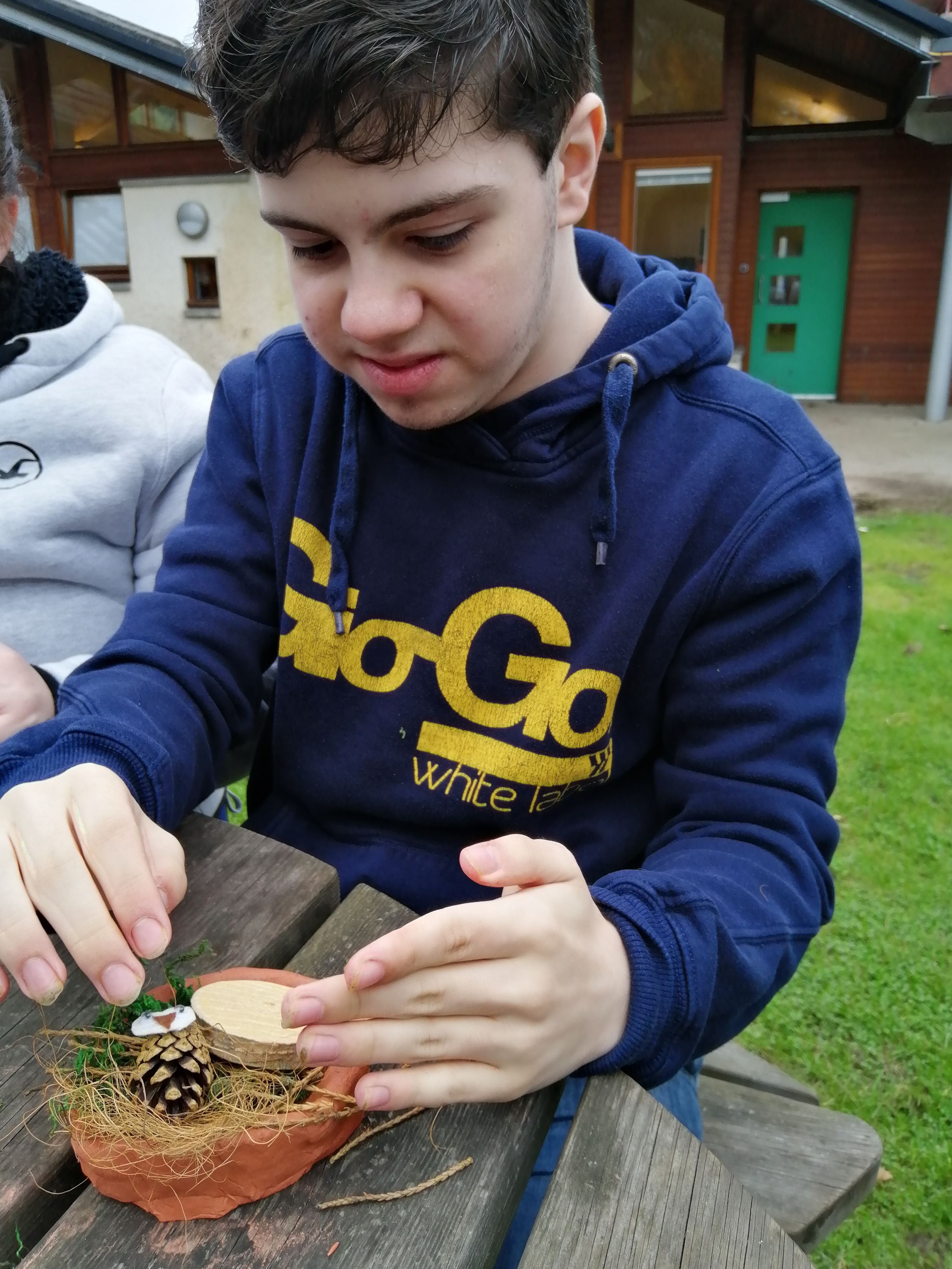
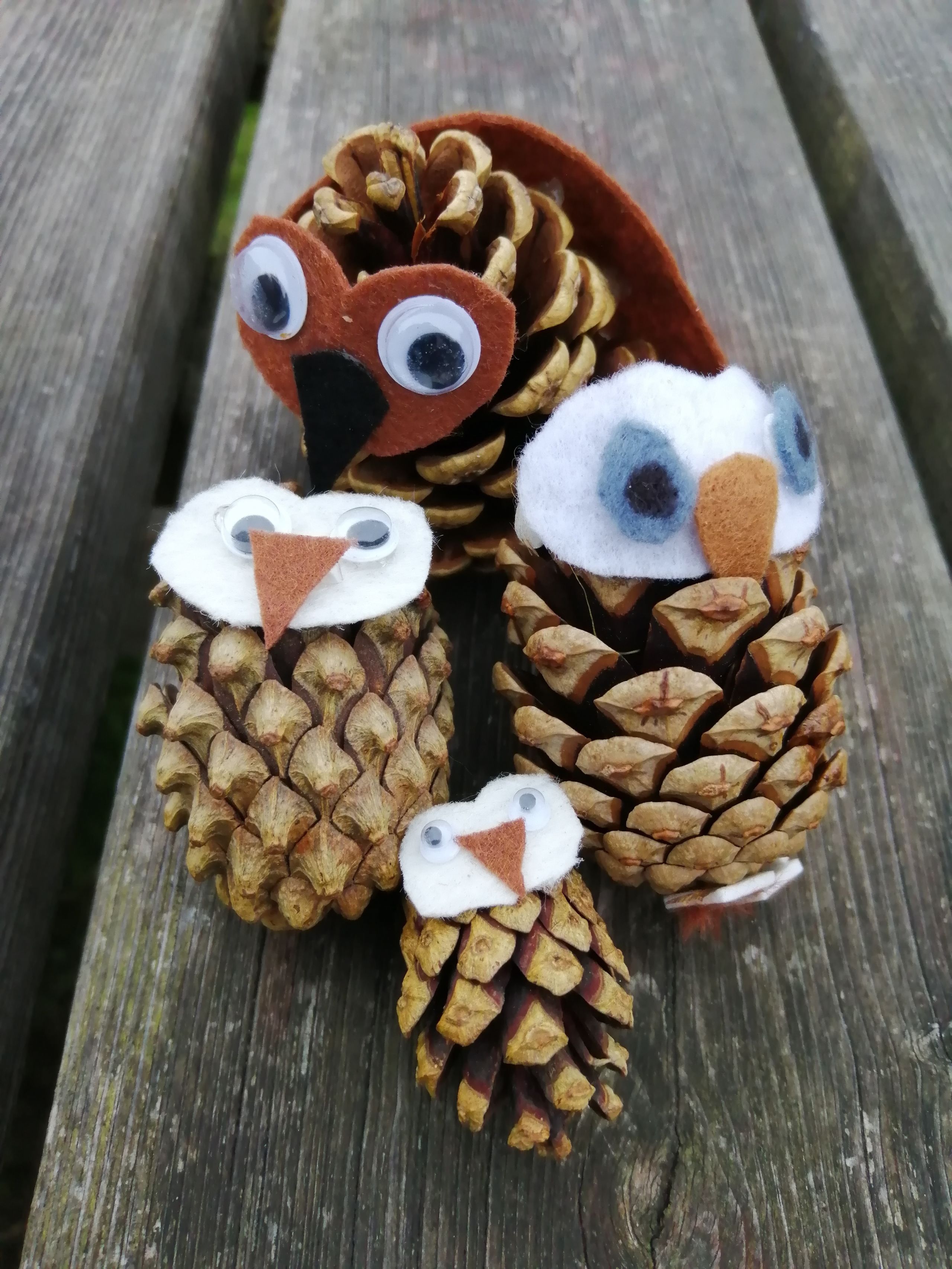
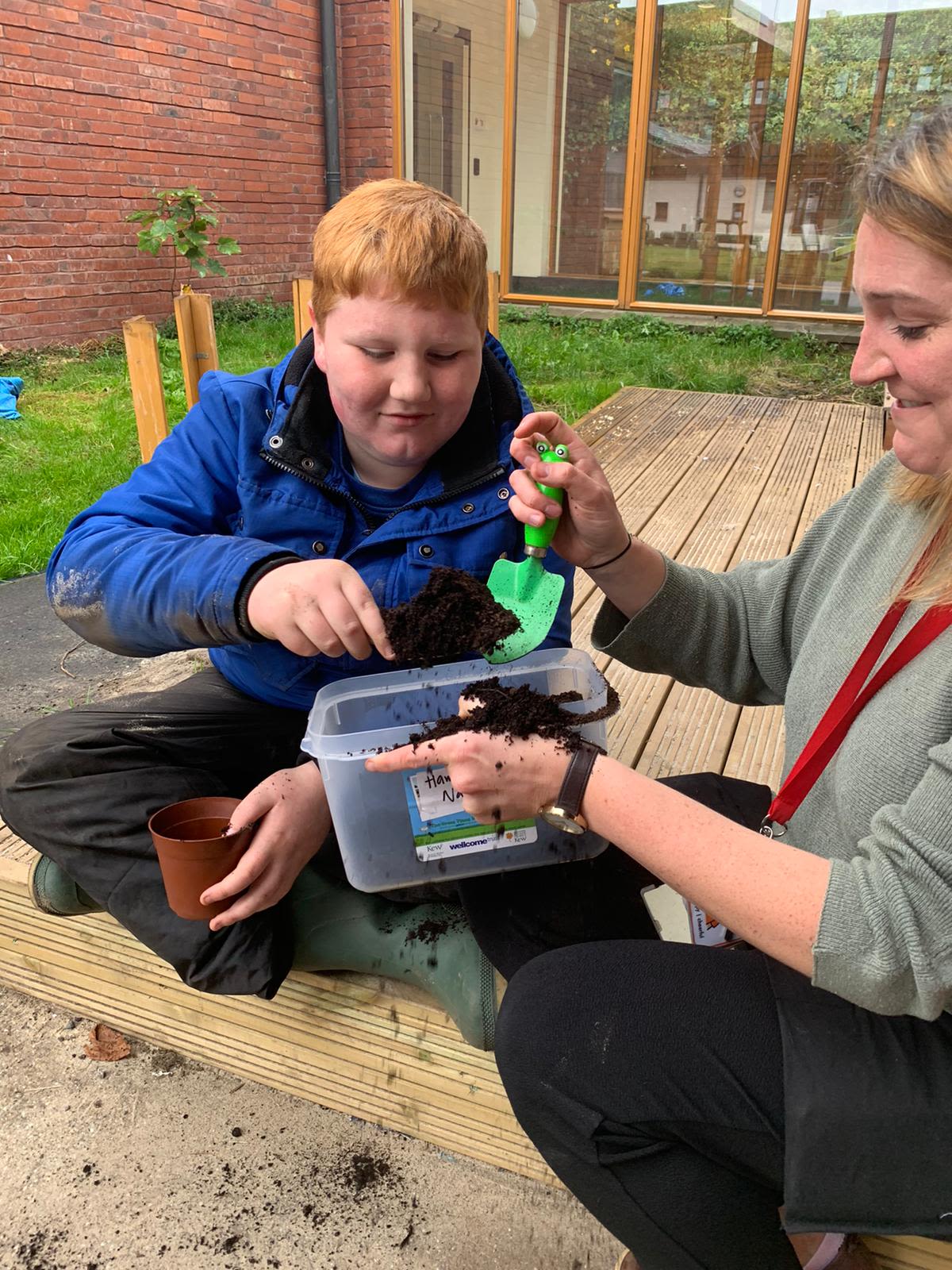
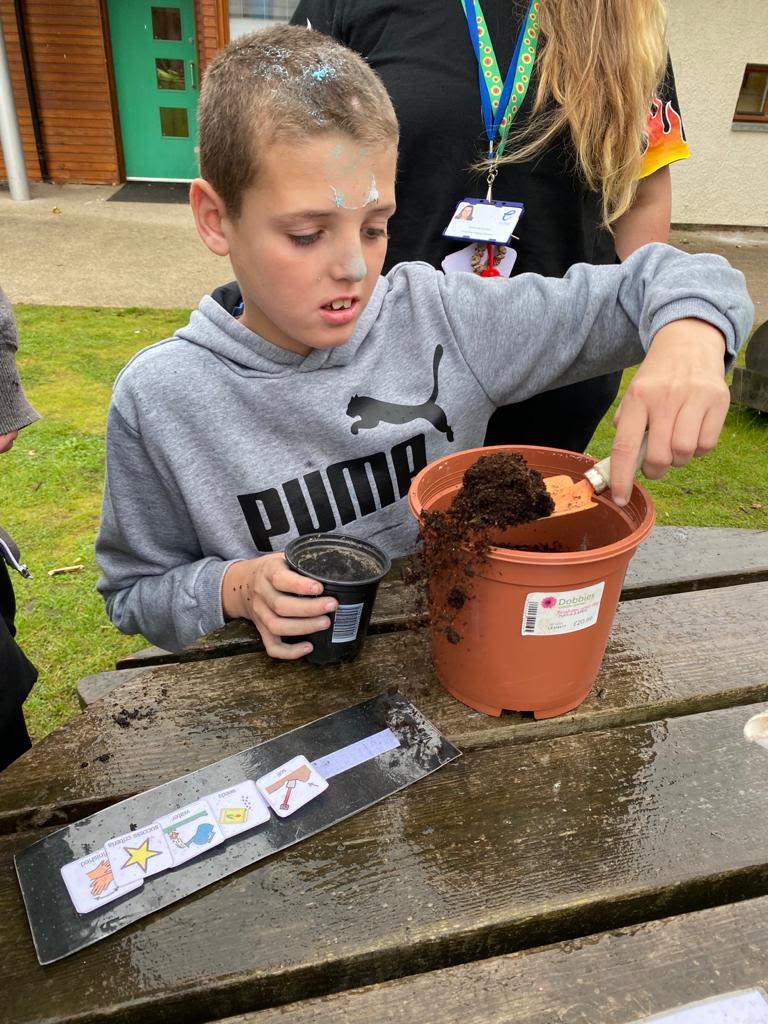
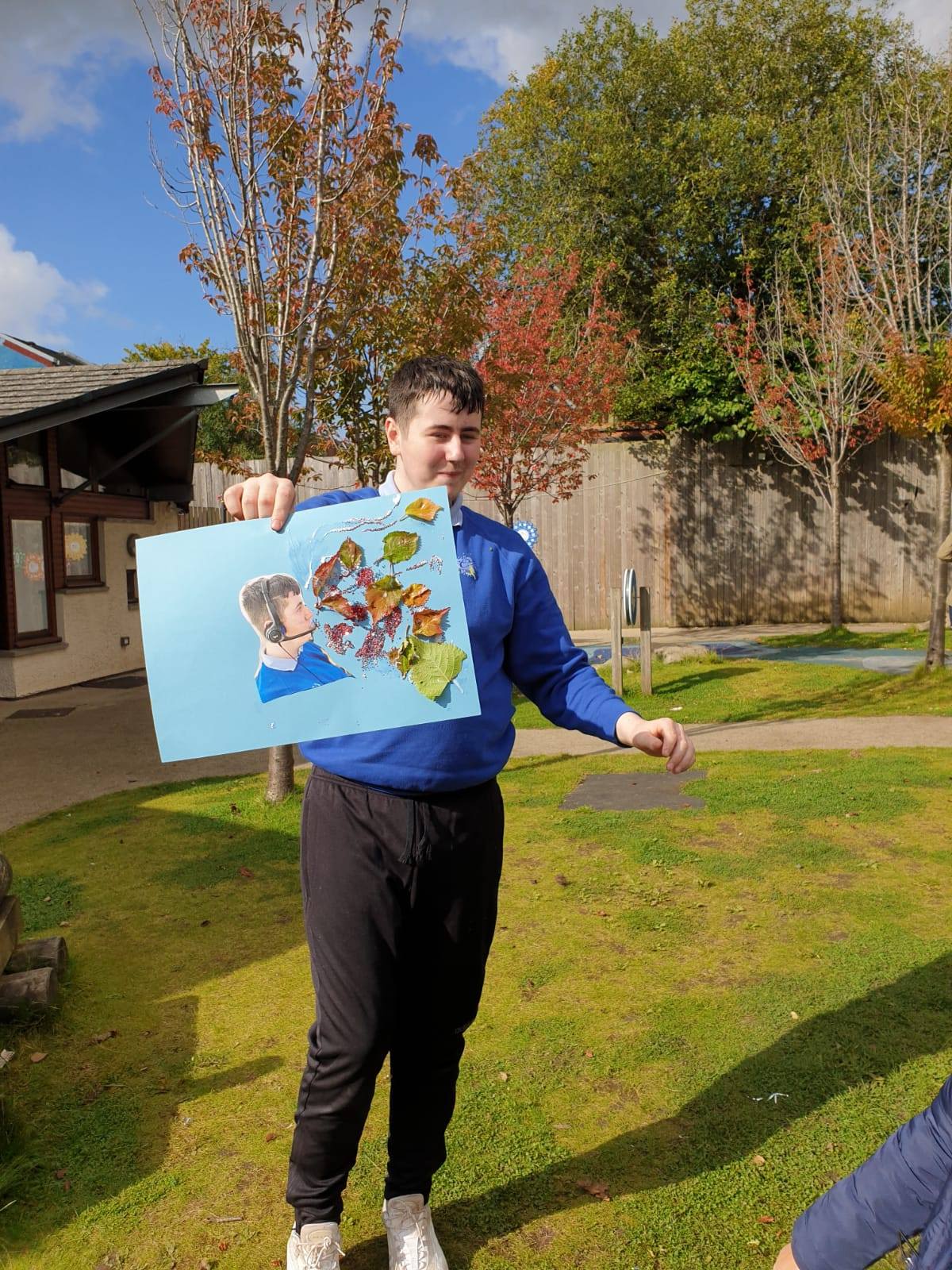
credits:
Pictures courtesy of East Park School and Eco Drama.
CELCIS would like to thank East Park School and Eco Drama for their help in producing this article.
Published January 2021


